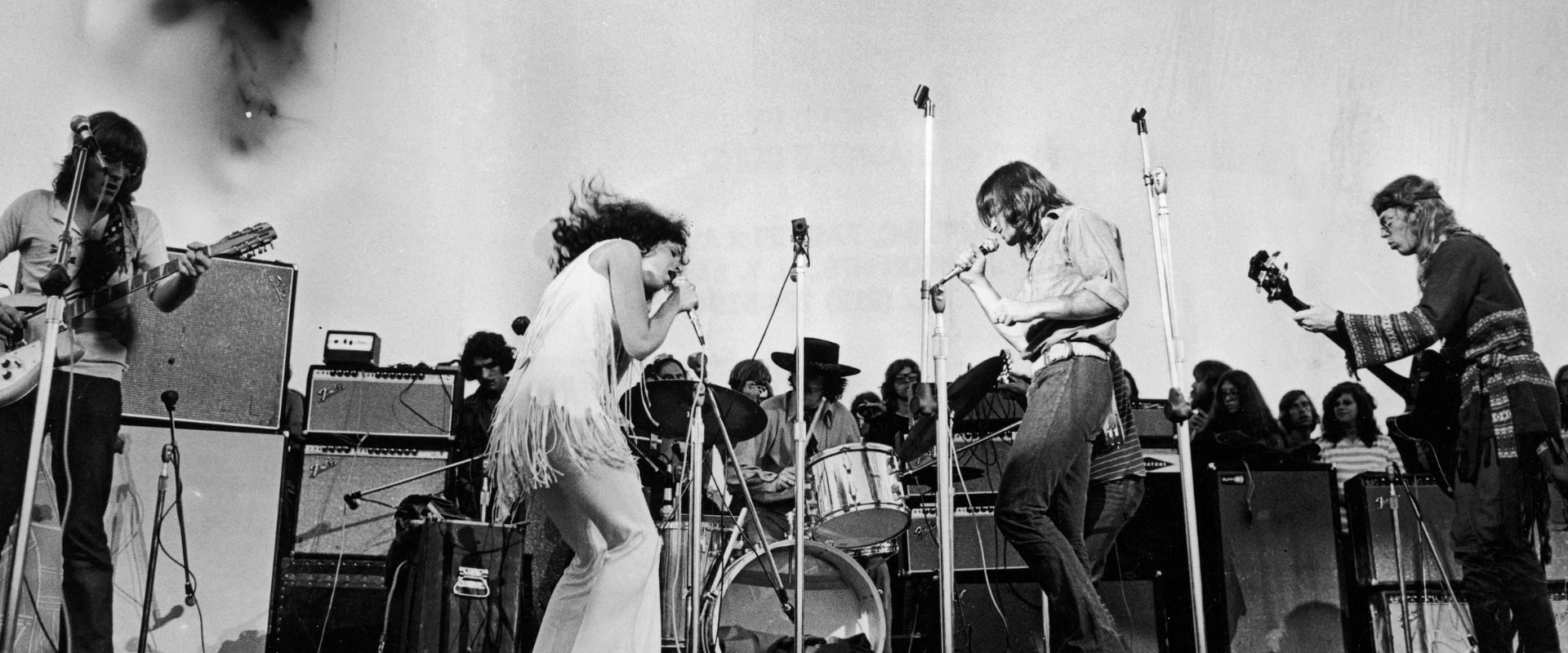When a lead singer leaves a band, it can sometimes indicate turmoil or instability that’s too difficult to overcome. But if you look through rock history, you’ll find several instances where a new voice on the mike sparked a surge in the band’s popularity. The circumstances behind the original lead singer leaving differ. What do they have in common? They all enjoyed their greatest success when the original lead vocalist bowed out.
Jefferson Airplane
Technically, Marty Balin, who sang the majority of the lead vocals on this band’s 1966 debut, Jefferson Airplane Takes Off, didn’t leave this group. But he was usurped as lead singer once Grace Slick took over. Slick nominally replaced Signe Andersson, who sang a few songs on the debut album and then left when she became a mother. On Surrealistic Pillow in 1967, Slick sang lead on the band’s breakout hits “White Rabbit” and “Somebody To Love”, songs she had written and performed with her previous band, The Great Society.
Pink Floyd
When Pink Floyd began, Syd Barrett dominated proceedings as their lead singer, guitarist, and songwriter. But shortly after the success of their 1967 psychedelic masterpiece The Piper At The Gates Of Dawn, Barrett’s mental health deteriorated, and he was fired from the band. David Gilmour had already joined by that time as a second guitarist. On subsequent albums, he, Roger Waters, and Rick Wright shared the singing duties. That was Pink Floyd’s formula when they achieved superstardom with the 1973 album Dark Side Of The Moon.
Steely Dan
In the beginning of Steely Dan, Donald Fagen wasn’t all that crazy about singing the songs he wrote with Walter Becker in front of live audiences. (They’d eventually bag touring completely, but that’s another story.) Hence, David Palmer joined the Dan for their debut album, Can’t Buy A Thrill. He even sang a few songs, including “Dirty Work”, which has become a classic rock staple. But Steely Dan moved on without him from there, with Fagen proving quite adept at singing the band’s twisty lyrics.
Journey
Journey’s album sales were improving with each of their 70s releases. But singles success eluded them. They felt that part of the problem was that their chief singer, Gregg Rolie, was stuck behind his keyboards, robbing them of connection with their fans. For this reason, they hired Steve Perry. Perry entered the picture with his acrobatic vocals and changed the band’s trajectory almost immediately. His songwriting pushed them in a more accessible direction, and soon they were all over the Top 40. Rolie left the band in 1980 after the Departure album.
Genesis
Many industry experts thought that Genesis was toast once Peter Gabriel departed. So much of what the band had accomplished in the early 70s emanated from his striking stage presence and artistic vision. But Gabriel grew increasingly frustrated by the pressures of being a frontman. He left the band in 1975, leaving drummer Phil Collins to sing lead. Eventually shaved down to a trio, Genesis shifted from progressive leanings to a much more pop-friendly sound. In that guise, they became one of the biggest bands in the world.
Photo by Getty Images/Getty Images

